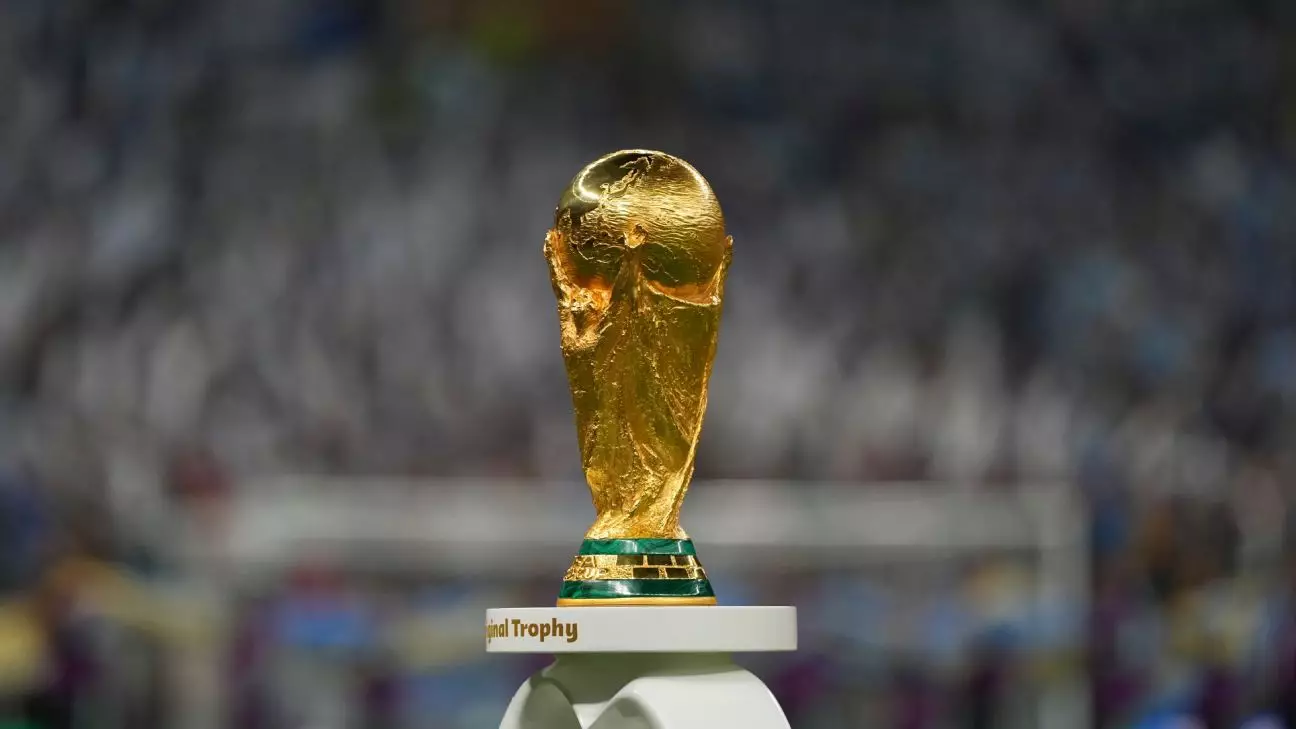In a bold move that has stirred up significant controversy, FIFA has proposed to host the 2034 World Cup in Saudi Arabia, casting a shadow of uncertainty over the established football calendar. Following the announcement that Saudi Arabia emerged as the sole bidder for the tournament, FIFA is poised to cement its decision by confirming the Middle Eastern nation as the host country. However, this ambition is marred by growing opposition from Europe’s elite leagues, especially in light of the potential disruption that a winter World Cup could inflict on the footballing ecosystem.
The fundamental concern hinges on the scheduling of the World Cup, which is projected to take place between October and April to circumvent the stifling summer heat characteristic of the region. This mid-season arrangement echoes the recent 2022 Qatar World Cup, which notably altered the traditional June-July timeline leading to substantial ramifications for club football. The 2030 tournament already boasts a unique multi-nation format. Therefore, the transition to a winter World Cup raises alarm bells concerning player fatigue and the overall integrity of league competitions.
FIFA’s strategy has not gained universal acceptance, as player unions and league bodies have vocalized their discontent. Specifically, FIFPRO Europe has filed a legal complaint to the European Commission, alleging a conflict of interest given FIFA’s dual role as the organizer and governing body of international matches. This complaint spotlights the growing need for collaboration between FIFA and stakeholders, an element they deem crucial for harmonizing the International Match Calendar.
According to various reports, the legal standing of FIFA appears shaky; the European Court of Justice has previously adjudicated in favor of leagues requiring FIFA’s consensus before implementing major calendar changes. With the proposed 48-team tournament expected to feature 104 matches over a span of five weeks, the implications for European leagues are profound. Such a dramatic logistics overhaul would necessitate a monumental restructuring of league schedules, potentially having clubs release players for extended periods—up to 49 days—exacerbating already pressing concerns regarding player workload and mental health.
Notably, the 2022 World Cup required European leagues to adjust their domestic schedules significantly, prompting some leagues to undergo extended breaks. The anticipation of a similar scenario for 2034 ignites fears among clubs regarding the competitiveness of their leagues and the welfare of their players.
It has become increasingly essential for FIFA to foster transparent communication with leagues and players before finalizing the calendar for the 2034 World Cup. While FIFA assures stakeholders that consultations will take place, the history of FIFA’s unilateral decisions has led to skepticism among European leagues. The current International Match Calendar extends only until 2030, meaning any substantive changes for 2034 would require a dedicated effort to engage all relevant parties in constructive dialogue.
Furthermore, the strained relations between FIFA and European leagues point to a more pressing need for reform in how international tournaments are curated and scheduled. Without adequate consultation, FIFA risks alienating its primary stakeholders—those who ultimately contribute to the sport’s vibrancy and, importantly, its economic landscape.
The impending approval of Saudi Arabia as the host for the 2034 World Cup poses significant challenges as FIFA grapples with the implications of a winter tournament. With player welfare, league integrity, and compliance with legal mandates hanging in the balance, stakeholders must pursue a path of cooperation and mutual interest. If FIFA intends to navigate this tumultuous terrain effectively, it must prioritize engagement with leagues and players alike, ensuring that the global football community remains united in the face of transformational change. The success of the 2034 World Cup will hinge not only on logistics but on the ability to forge a collaborative framework that respects all parties involved.
